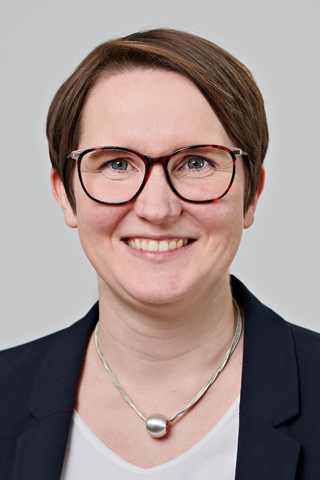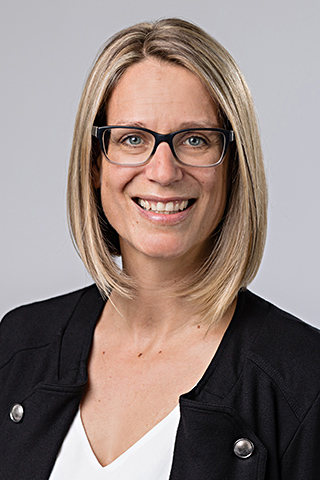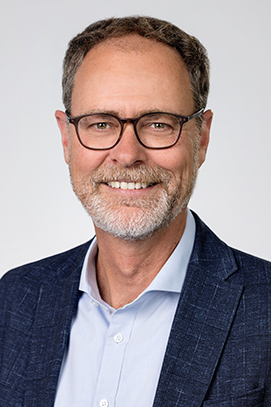DAS THEMENSPEKTRUM DES VDMA - DAS THEMENSPEKTRUM DES VDMA - DAS THEMENSPEKTRUM DES VDMA -


The EU Commission announced that it would simplify the rules on State aid in order to promote the development of clean energy, decarbonization and net-zero technologies.
The EU omnibus package is intended to significantly reduce the bureaucratic burden on companies. Now the package must no longer be torpedoed. Bureaucracy must not become an obstacle to innovation.
Nine major business associations from Germany have issued a joint appeal warning that progress on cutting red tape in Europe should not be jeopardized.
The 6th edition of the VDMA Technology Guide Oil Gas Petrochemicals with focus on Net-Zero Solutions for energy-intensive Industries. Are you among the Who's Who of European process technology suppliers?
Here you will find an updated overview of the progress of the project after the third face-to-face meeting on 12.03.202 (update no. 4).
The first year under the EU Battery Regulation - The new German Battery Law Implementing Act (BattDG): What do producers and manufacturers need to consider?
Under the headline “The new EU Packaging Regulation – What does this mean for the mechanical engineering industry?”, the VDMA held an online event on May 27, 2025. Here are the key points in brief.
Morgan Stanley analyzes the ramp-up of a green hydrogen economy in the US and Europe and advises caution when investing, as green hydrogen will remain expensive compared to other sources for the foreseeable future.
ECHA has been tasked by the European Commission to develop a proposal for the restriction of various chromium(VI) substances. The proposal was published at the end of April 2025 and can be commented on from mid-June.
The CO2 border adjustment mechanism (CBAM) should be simplified. This is also urgently needed: Small and medium-sized companies in particular must be exempted.
This was the motto of the VDMA Energy Networking Day held in Frankfurt on May 7 and 8. Around 80 members from several trade associations came together to discuss strategically relevant issues relating to energy and climate policy.
The Centre for European Policy provides a good overview of the current state of the German energy sector with reference to natural gas and hydrogen as important energy sources and formulates recommendations for policy makers
A division of the German electricity bidding zone would be a drastic change to the system and would call into question many projects that have already been initiated. Rapid and consistent grid expansion is crucial in order to counter existing system bottlenecks.
The amendment to the German Federal Emission Protection Ordinance (4th BImSchV) by the German legislator brings clarity and relief both for the placing on the market of smaller electrolysers below 5 MW and for large-scale plants.
The new Clean Industrial Deal seeks to answer the industry calls for competitiveness as the successor of the EU Green Deal?
Good news from Brussels: the suspension of several reporting obligations gives companies the capacity to act in order to focus on important areas of transformation.
VDMA Members from Austria and Bavaria met in Salzburg to discuss the implemtation of the European Union's new Ecodesign for Sustainable Products Regulation (ESPR)
Have you already calculated your company's climate footprint and defined ambitious climate targets? But what specific measures can a company take to achieve these goals?
There are major growth opportunities for the mechanical and plant engineering sector in climate protection technologies. To remain competitive, reliable framework conditions for investments and technology-open implementation are essential.
Emissions trading is the lead instrument for climate protection. EU countries are using additional instruments to achieve further targets. An IMPULS study examines the challenges of the instrument mix.
At the end of November 2024, the European Court of Justice ruled that the "customer installation" grid category is unlawful.
With the ‘Sustainability Talks’, the VDMA is organising a web series on current and relevant sustainability topics for the mechanical and plant engineering industry. You can find an overview of the topics and dates here.
AM in the VDMA wants to improve the CO2 footprint of additive manufacturing machines. By developing specific product category rules (PCRs), we want to create a standardized basis for calculating the product carbon footprint (PCF).
The EU wants to noticeably relieve companies of the bureaucratic costs associated with CBAM. This is a welcome relief for many small and medium-sized companies.
The objectives of the Clean Industrial Deal are fundamentally correct. However, EU policy must urgently improve the conditions in Europe across the board. Not only the symptoms of crisis industries must be treated.
The transition to sustainability presents challenges for mechanical engineering – along with a flood of technical terms. Our **Glossary of Environmental and Sustainability Terms in Mechanical Engineering** sheds light on the complexities.
Innovative solutions and pioneering technologies at the world's largest industrial trade fair.
In the IEA's 2024 "Energy Technology Perspectives" report, the agency looks at global market developments in green technologies and the resilience of their production chains.
Energy and climate policy remain highly relevant in politics. This is why the amendment to the Greenhouse Gas Emissions Trading Act is a positive measure.
With the Omnibus Regulation, Commission President von der Leyen wants to consolidate, reduce and simplify various ESG reporting obligations. The VDMA welcomes the initiative and is submitting specific proposals for improvement.
2025 is the last year before CBAM’s full implementation, what are the latest developments EU companies need to consider?
Focus on the circular economy: countries around the world are enacting regulations on packaging and waste in order to reduce environmental pollution. The overview "Regulations on packaging and packaging waste" shows current and planned measures. Download now!
The German government now also wants to relieve companies of CSRD reporting obligations. It would be an urgently needed step. Politicians must now do everything they can to convince the EU of this measure.
The European Deforestation Regulation is being postponed - an important measure to ease the burden on companies. Other EU regulations must now also be put to the test as part of the omnibus regulation.
ESG-Reporting
The call for sector specific sustainability benchmarks has increased as mechanical engineering companies come under pressure from legislation and customers to report their sustainability impact.
Many mechanical engineering companies supply the technologies needed for a circular economy. This makes it all the more important that the EU and the future German government seriously pursue a circular economy policy.
In the dispute over the regulation of PFAS, ECHA is signaling initial openness to alternatives to a comprehensive ban. For the industries in Europe that rely on PFAS, this is a cautious signal in the right direction.
The COP29 climate conference in Baku has opened the way to a global carbon market - but postponed crucial questions on financing global climate protection. Small steps, but not nearly enough.
The agreement reached at the COP climate conference on a voluntary global carbon market is a milestone. It has the potential to accelerate the global use of particularly efficient technologies to avoid emissions.
The new regulatory overview keeps you up to date with the most important existing and upcoming regulations in the areas of product safety, operational safety, environmental regulations, sustainability and occupational safety.
The COP29 world climate conference is taking place in Baku (Azerbaijan) from November 11 to 29. Find out here what topics will be discussed there and how the results could affect the mechanical and plant engineering sector.
Climate protection needs sufficient resources - both financially and technologically. The climate conference in Baku must set the right course for this.
The importance of green technologies is increasing globally China could become the dominant market player in many technologies in the coming years. The study examines how Europe can maintain its strategic independence.
On October 29, the European Commission hosted a webinar explaining the application process for strategic recognition of manufacturing projects under the Net-Zero Industry Act.
On August 29, Germany published its updated national energy and climate plan. In these plans, each EU member state provides comprehensive information on its national energy and climate policy for the next 10 years.
At an initial public meeting on 3.9.2024 at the VDMA in Frankfurt, almost 50 experts specified the aim and focus of the project and defined working groups. Initial results will be discussed on 8.11.2024. (Update no. 2)
The German Supply Chain Act places an undue burden on small and medium-sized industrial companies. The CDU/CSU is therefore quite rightly calling for it to be repealed in the Bundestag.
The new European chemicals package must take greater account of the needs of small and medium-sized companies in particular. General bans are the wrong approach.
Clever ideas for more climate protection: A team of Arburg employees took 1st place in the Carbon Busters Award for their CO2 reduction project. The prize recognizes the commitment of the mechanical engineering industry to achieving climate targets.
On 26 February, the European Commission published the omnibus proposal on sustainability. The EU Commission is thus responding to the concerns of the overburdened economy and strengthening competitiveness.
The revised Corporate Sustainability Reporting Directive (CSRD) had significantly expanded the user group. The EU Commission's omnibus proposal aims to narrow this down again and to simplify and reduce reporting information.
The proposed regulation of voluntary environmental claims in Business-to-Consumer activities awaits vote in European Parliament.
The European Sustainable Finance Taxonomy Regulation aims to define what environmentally sustainable economic activities are and thus create a standardized classification system within the EU.
The final form of the Corporate Due Diligence Directive (CS3D) will be negotiated at EU level in 2023. In Germany, the Bundestag has already passed a Supply Chain Due Diligence Act (LkSG) in 2021.
Since the beginning of 2021, importers of conflict minerals such as tin, tantalum, tungsten and gold from risk areas into the EU have been subject to binding due diligence obligations.
2025 is the last year before CBAM’s full implementation, what are the latest developments EU companies need to consider?
In December 2024, the EU bodies agree to postpone the start of implementation by 1 year.
Important questions on this topic
-
PCF Guideline: How can companies determine their product carbon footprint?
-
What new obligations does the Energy Efficiency Act impose?
-
VDMA Material Compliance Guideline: How can companies fulfil product-related environmental requirements?
-
Where can I find information on product-related environmental requirements outside the EU?
Events
VDMA partners



.jpg/5347c874-9f7c-c510-eaba-58e2dee1566f)





















